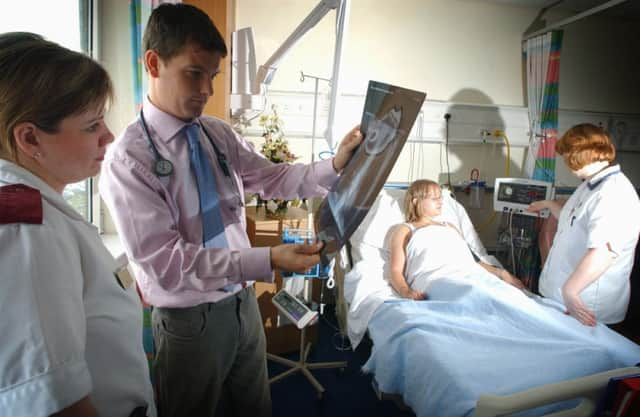NHS denying patients ‘good death’, warns professor


Professor Robin Taylor, a respiratory consultant at Wishaw General Hospital in Lanarkshire, said talking about death is a major taboo for doctors, nurses and society in general.
But writing on Scotsman.com, he said the consequences of not facing the issue were dire for both patients and NHS staff.
Advertisement
Hide AdAdvertisement
Hide AdProf Taylor, who returned to Scotland last year after 25 years working in New Zealand, said he had been motivated to speak out about the need for a culture change on how death and dying are handled, following an inquiry into raised mortality rates at Lanarkshire hospitals last year.
He said it had failed to make a distinction between inevitable and preventable deaths.
Prof Taylor writes: “To state that not all deaths are preventable seems starkly obvious, but we function as if they were. And even when inevitable deaths happen, we often resort to fault-finding.”
In his article “Death in the NHS: time for a culture change”, Prof Taylor says a “fix it” philosophy which began in the NHS in the 1960s, in which the aim was to “fix” everyone who came into hospital, is continuing to dominate medicine today.
“The ‘fix it’ approach does not allow for the possibility that what we are doing may be quite inappropriate,” he writes.
“We are all trapped in the make-believe that everyone can – and should be – fixed every time. It is the default position especially in the minds of younger doctors who fear criticism. This needs to change.”
Prof Taylor said the taboo around the diagnosis of dying needs to be broken, meaning that doctors have to be truthful with patients approaching the end of their lives.
“Too often this is avoided, even when clinicians and patients alike know that death is drawing near,” he writes.
Advertisement
Hide AdAdvertisement
Hide Ad“Though it may cause temporary emotional distress, there is no evidence that honesty diminishes hope. Most patients prefer truth to a benignly intentioned cover-up.”
The medic said there also needed to be more truthfulness about the limitations and even the futility of medical interventions, so that patients can experience a “good death” with more appropriate end-of-life care.
Prof Taylor said with hospitals struggling to cope with rising admissions and reduced resources, the issue needed to be tackled head-on.
He added: You cannot fix all of the people all of the time and we need to be set free from that mindset.”
Mark Hazelwood, chief exective of the Scottish Partnership for Palliative Care, said Prof Taylor had highlighted the importance of the public and healthcare professionals being able to participate in honest conversations about death.
He added: “Our culture encourages us all to shy away from discussing this subject, and this makes it harder to plan and provide the kind of care people want as they approach the end of their natural life.
“As a society we need to support each other to become more open about death, dying and bereavement.”